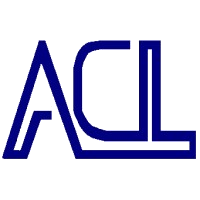Global Process Automation Markets 2016-2018 & 2019-2026 - ResearchAndMarkets.com
The "Process Automation - Global Market Outlook (2017-2026)" report has been added to ResearchAndMarkets.com's offering.
Global Process Automation Market is expected to grow at a CAGR of 9.4% during the forecast period
Improved focus on manufacturing in developing economies, technological innovations and growing adoption of robotics are some of the factors fueling the market growth. However, shortage of skilled workforce and security concerns are hindering the market.
Process automation industries have been into continuation for a long time. The advance in automation systems has taken the process industries to a next level in terms of time management, production quality, energy efficiency and optimization of process. It generally follows five layered architecture in which I/O systems is at lowest level then PLC then SCADA followed by MES and ERP respectively. These five layers together form process automation.
Based on end user, paper and pulp industry has significant growth during the forecast period due to it required high utilization of raw material during a lot of process with close monitoring of temperature and chemical content and the process automation allows to achieve the same from one location through the process automation. By geography, North America has the largest market share during the forecast period owing to the major developments surrounding the emerging technologies.
What the report offers:
- Market share assessments for the regional and country level segments
- Strategic recommendations for the new entrants
- Market forecasts for a minimum of 9 years of all the mentioned segments, sub segments and the regional markets
- Market Trends (Drivers, Constraints, Opportunities, Threats, Challenges, Investment Opportunities, and recommendations)
- Strategic analysis: Drivers and Constraints, Product/Technology Analysis, Porter's five forces analysis, SWOT analysis etc.
- Strategic recommendations in key business segments based on the market estimations
- Competitive landscaping mapping the key common trends
- Company profiling with detailed strategies, financials, and recent developments
- Supply chain trends mapping the latest technological advancements
Key Topics Covered:
1 Executive Summary
2 Preface
2.1 Abstract
2.2 Stake Holders
2.3 Research Scope
2.4 Research Methodology
2.5 Research Sources
3 Market Trend Analysis
3.1 Introduction
3.2 Drivers
3.3 Restraints
3.4 Opportunities
3.5 Threats
3.6 End User Analysis
3.7 Emerging Markets
3.8 Futuristic Market Scenario
4 Porters Five Force Analysis
4.1 Bargaining power of suppliers
4.2 Bargaining power of buyers
4.3 Threat of substitutes
4.4 Threat of new entrants
4.5 Competitive rivalry
5 Global Process Automation Market, By Valves, Actuators and Positioners
5.1 Introduction
5.2 Actuators
5.2.1 Hydraulic Actuator
5.2.2 Mechanical Actuator
5.2.3 Pneumatic Actuator
5.2.4 Electric Actuator
5.2.4.1 Modulating Actuator
5.2.4.2 Valve Motor Drive Actuator
5.3 Valves
5.3.1 Overpressure Protection
5.3.2 Check Valve
5.3.3 Control Valve
5.3.4 Emergency Shut-down Valve
5.3.5 Other Valves
5.4 Positioners
5.4.1 Pneumatic Positioners
5.4.2 Digital Positioners
5.4.3 Electro-Pneumatic Positioners
6 Global Process Automation Market, By Modules
6.1 Introduction
6.2 Switches
6.3 Input/Output Cards
6.4 Controllers
6.5 Software Systems
6.5.1 Distributed Control Systems (DCS)
6.5.2 Product Lifecycle Management (PLM)
6.5.3 Supervisory Control and Data Acquisition (SCADA)
6.5.4 Manufacturing Execution Systems (MES)
6.5.5 Programmable Logic Controllers (PLC)
6.5.6 Enterprise Resource Planning (ERP)
6.5.7 Human Machine Interface (HMI)
6.6 Process Automation Services
6.6.1 Design and Engineering
6.6.2 Operational Management and Maintenance
6.6.3 Installation and Commissioning
6.6.4 Other Process Automation Services
6.7 Instrumentation & Controls
6.7.1 Position Sensors
6.7.2 Pressure Transmitters
6.7.3 Temperature Transmitters
6.7.4 Flow Transmitters
6.7.5 Speed Sensors
6.7.6 Force/Strain Sensors
6.7.7 Process Tachometers
6.7.8 Level Transmitters
7 Global Process Automation Market, By Communication Protocol
7.1 Introduction
7.2 Wireless Protocol
7.3 Wired Protocol
8 Global Process Automation Market, By End User
8.1 Introduction
8.2 Food and Beverages
8.3 Oil and Gas
8.4 Chemical and Petrochemical
8.5 Water and Wastewater Treatment
8.6 Paper and Pulp
8.7 Pharmaceutical
8.8 Energy and Utilities
8.9 Automotive
8.10 Packaging
8.11 Metals Industry
8.12 Other End Users
9 Global Process Automation Market, By Geography
9.1 Introduction
9.2 North America
9.2.1 US
9.2.2 Canada
9.2.3 Mexico
9.3 Europe
9.3.1 Germany
9.3.2 UK
9.3.3 Italy
9.3.4 France
9.3.5 Spain
9.3.6 Rest of Europe
9.4 Asia Pacific
9.4.1 Japan
9.4.2 China
9.4.3 India
9.4.4 Australia
9.4.5 New Zealand
9.4.6 South Korea
9.4.7 Rest of Asia Pacific
9.5 South America
9.5.1 Argentina
9.5.2 Brazil
9.5.3 Chile
9.5.4 Rest of South America
9.6 Middle East & Africa
9.6.1 Saudi Arabia
9.6.2 UAE
9.6.3 Qatar
9.6.4 South Africa
9.6.5 Rest of Middle East & Africa
10 Key Developments
10.1 Agreements, Partnerships, Collaborations and Joint Ventures
10.2 Acquisitions & Mergers
10.3 New Product Launch
10.4 Expansions
10.5 Other Key Strategies
11 Company Profiling
11.1 Siemens AG
11.2 ABB Ltd
11.3 Honeywell International Inc
11.4 Schneider Electric
11.5 Danaher Corporation
11.6 Mitsubishi Electric Corporation
11.7 Emerson Electric Co
11.8 Ametek Inc
11.9 Rockwell Automation
11.10 Teledyne Technologies Inc
11.11 Yamatake Corporation
11.12 Omron Corporation
11.13 Robert Bosch GmBH
11.14 Texas Instruments, Inc.
11.15 Eaton Corporation
For more information about this report visit https://www.researchandmarkets.com/r/xec6ym
View source version on businesswire.com: https://www.businesswire.com/news/home/20190710005453/en/



